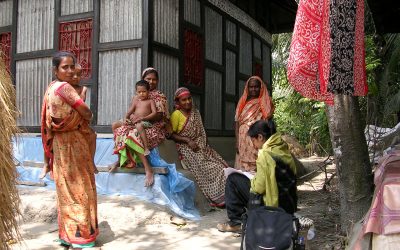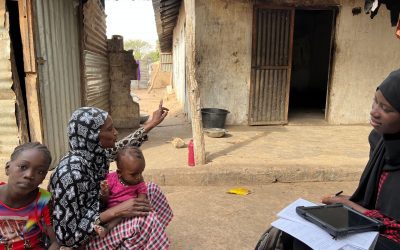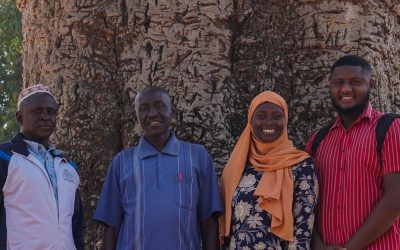The Unwanted Natural Experiment: Reflections on Fieldwork while Waiting out a Pandemic
By Richard Sosis
Conducting ethnographic research consists of living and engaging with a community. It involves getting entangled in peoples’ lives: asking endless questions, listening to and telling stories, sharing knowledge and possessions, laughing at oneself, and inevitably offending people along the way. It means making friends and sometimes enemies and all the other messy things that come along with human social life. If you are a skilled and lucky ethnographer (yes, good fortune is essential), ethnographic research can enrich the lives of those who welcomed you into their community. Ethnographic research can also benefit students who learn about other cultures through scholarly writings, lectures, and videos. As one of my students appreciatively wrote to me at the end of this past semester, “reading ethnographies in your course made me realize that there are many ways to live life,” a lesson which precisely captures one of the underlying objectives of teaching anthropology.
Although many disciplines employ ethnographic methods, ever since Franz Boas’ seminal fieldwork among the Inuit of Baffin Island in 1883, ethnography has been the dominant methodological approach among anthropologists who study extant human cultures. This approach is often described as “participant observation,” although anthropologists have spent considerable time debating the “participant” part of the formula: how participatory should the observer be? Responses range from minimizing participation to seek a purely objective assessment of a culture, to complete social immersion, including embracing witchcraft, sorcery, and even enduring painful initiation rites that require tattooing, piercings, and ingesting toxic substances. Regardless of how anthropologists pursue their craft – most research is situated between these two extremes – one of the primary goals of ethnographic fieldwork is to understand what it is like to be in someone else’s shoes. It is a method that resonates with probably the only tenet of anthropology that is shared by all its diverse subfields: seek to understand before we judge.
Our research for the Evolutionary Dynamics of Religion, Family Size, and Child Success Project falls toward the objective end of the participatory ethnographic continuum. Although a phenomenological appreciation of caring for other people’s children is important, this is not our main interest and we have no plans to engage in allocare ourselves. Rather, we are aiming to statistically test specific hypotheses that require the collection of quantitative data. As evolutionary anthropologists, behavioral ecologists, and demographers we are scientifically oriented and quantitatively biased. Our orientation was partially captured by Lord Kelvin during a lecture to civil engineers, incidentally, in the same year that Boas arrived on Baffin Island:
[W]hen you can measure what you are speaking about, and express it in numbers, you know something about it; but when you cannot measure it, when you cannot express it in numbers, your knowledge is of a meagre and unsatisfactory kind.
I emphasize “partially” because Lord Kelvin’s quote does not fully depict our stance on quantitative research. As ethnographers, our engagement in the lives of the people with whom we work invariably informs our research. In other words, qualitative ethnographic experiences ultimately help us frame our observations, survey instruments, and quantitative data collection. Upon considering Lord Kelvin’s position, essayist Lewis Thomas notes,
The task of converting observations into numbers is the hardest of all, the last task rather than the first thing to be done, and it can be done only when you have learned, beforehand, a great deal about the observations themselves. You can, to be sure, achieve a very deep understanding of nature by quantitative measurement, but you must know what you are talking about before you can begin applying the numbers for making predictions.
Late Night Thoughts on Listening to Mahler’s Ninth Symphony (1983)
Although not an ethnographer, I think Thomas’ insights mirror the conclusions of recent discussions among our research team about the relative roles of qualitative and quantitative data in our fieldwork. While quantitatively oriented, we reached a general consensus that our field studies should commence with focus groups in which we prompt qualitative discussions with open-ended questions about religion, fertility, parenting, and allocare. These focus groups will inform our survey instruments, enabling us to revise and develop questions accordingly. When considering the content of these focus groups, I realized that the current pandemic will provide an opportunity for our research participants to reflect on allocare in a way that would have otherwise been impossible several months ago.
To explain, I briefly detour to the other side of my academic life: teaching. When I am not teaching courses on either religion or evolutionary anthropology (or both) I teach a course on the anthropology of sport. In this course students are required to conduct ethnographic projects with a sport community, preferably one with which they are unfamiliar. Students have studied groups such as the campus fencing club, a softball team, local pole dancers, and a community of gymnasts on horses known as equestrian vaulting (google it and treat yourself to a few videos – it is extraordinary). Before the students begin their projects, we spend several classes developing a questionnaire they can use to interview participants. Of the many types of questions we discuss, I insist that students include “what if” questions in their questionnaire. As ethnographers (and budding ethnographers) we want people to reflect on how their culture and upbringing have shaped their lives. However, when immersed in a culture it is often difficult, if not impossible, to view it objectively. “What if” questions encourage interviewees to consider alternative ways of living, forcing them to imagine life outside their own culture. For example, my students often simply ask: “What would your life be like if your sport or sport community did not exist?”
This past semester, ethnographic projects in all of my courses were canceled when classes were moved online. Since the beginning of the pandemic, most universities have not only transitioned to online teaching, but they have shut down research that requires human interaction, unless it can directly benefit the current health crisis. In the Evolutionary Dynamics of Religion, Family Size, and Child Success Project our ethnographic work is currently on hold, although we are able to continue analyzing preexisting datasets and building simulations that will help us better understand the dynamics of allocare systems.
When we can begin our ethnographic fieldwork (i.e., when it is safe for everyone involved), it will primarily be quantitatively orientated, aimed at uncovering parental and alloparental investments in children, as well as the impacts of those investments on children’s health and education. Nonetheless, we are also interested in how parents perceive the investments they are receiving from others. How do parents understand the allocare system in which they are raising their children and how does this understanding influence their reproductive and investment decisions? What is the role of religion in defining those allocare obligations?
Our fieldwork will now additionally include questions about the ways in which the pandemic has impacted parenting and childcare investments, and analyzing these responses will be imperative. The pandemic has also created a so-called natural experiment. In our focus groups we won’t have to ask the “what if” question concerning an imagined world without community support, kin, or friends to directly help raise children; a world in which parents are solely responsible for rearing their children. These days, most parents have far too much firsthand experience with precisely this dystopic world. The allocare investments that mothers and fathers regularly benefited from prior to the pandemic may have been unappreciated or even unrecognized, since for many people such investments were simply an integral part of the daily fabric of their lives. That myopia, of course, will no longer be possible for anyone. Because of their experiences during the pandemic, participants in our fieldwork will be well-positioned to appreciate and reflect on the value of allocare.
While such qualitative insights will advance our understanding of local perspectives on allocare systems, such data are no compensation for the devastating loss of life and countless tragedies the world has suffered during this pandemic. Sadly, if our hypotheses about the value of allocare are correct, children’s health and education will be added to the list of tragedies. On the other hand, as anthropologists and behavioral ecologists we appreciate the extraordinary adaptability of humanity. Although many parents are juggling homeschooling, employment or job searching, and concerns about their elderly parents, they are also spending more direct time with their children. Hopefully, such parental investments will make up for any diminishment of their children’s flourishing resulting from losses in allocare investments. Once it is safe to pursue fieldwork, our research will be able to address these important questions.


